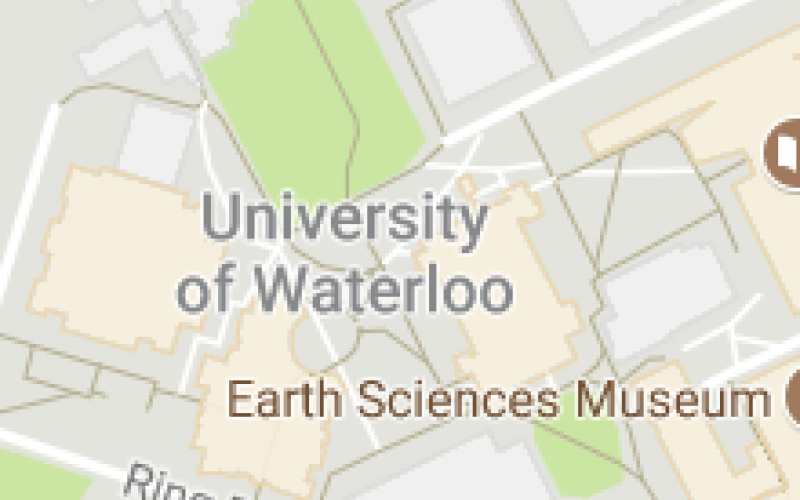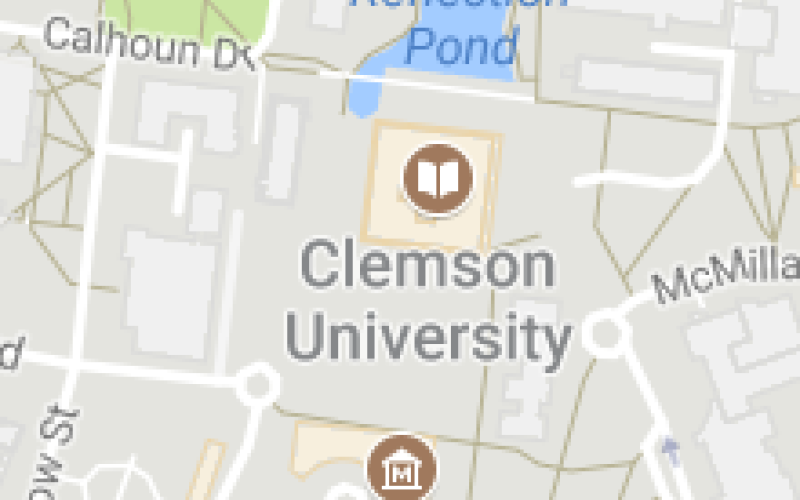Group Learning
Who's doing this at UT?
UT instructors across many disciplines have used Team-Based Learning to teach content and team skills. Students gain an appreciation for how productive and energizing collaboration can be when group work is structured and managed well.
How Can I Do This?
Group learning goes by many different names (e.g., group work, cooperative learning, team learning, peer instruction, etc.) and spans the spectrum from two students solving a problem to a team working on a semester long project. For group learning to be effective, the students need to practice team building skills and learn to be accountable to their group as well as themselves.
How do I teach my students team skills to work well as a group?
Students have often had bad group work experiences, so it is important to explain to them and persuade them that working as a group has positive outcomes (see “Why is This Important?” below). Tell them how, in your class, working as a group will be a positive experience because you are going to help them learn how to do it well.
- Ask students to write down (individually) what they like and don’t like about group work, then get them to brainstorm (as a group) how the things they don’t like could be improved and things they do like enhanced.
- Give students time to brainstorm and agree on the qualities of an effective team mate.
- Highlight qualities like coming prepared to contribute, actively listening, taking turns talking, not interrupting, encouraging others, sharing resources, being open-minded, giving constructive feedback, compromising, showing respect, etc.
- Guide students to negotiate a group contract that they all sign.
- Ask students periodically to reflect on how well they are doing developing these skills.
- Require peer evaluations of the collaborative process as well as the product.
- Teach students how to criticize constructively and give effective feedback so other team members can grow and improve. Show them models of helpful vs. unhelpful feedback.
- Model these skills yourself and praise students who practice them.
- Emphasize the value of group work early and often.
- Learn more about Team Skills
How should the groups be formed?
For students to get the most out of group learning, they need to work cooperatively with the same group for a period of time to solve complex problems. Getting the “right” balance of people in teams is very important. Heterogeneous groups provide a mix of resources for better quality work and help students develop social skills and awareness of diversity. Heterogeneity may mean building groups consisting of people with different perspectives, talents, or identities such as technological abilities, different years in college, age, or family background. Your outcomes will help you prioritize the different qualities that are important in your groups.
- Groups can be different sizes, depending on the task. Scientific and mathematical problem solving groups are best small, around 3. Groups who brainstorm and benefit from a variety of perspectives need 4-6 students.
- Some instructors assign roles to students such as contributor, collaborator, communicator, challenger etc. If you do this make sure the roles change so each student gets a chance to develop each of these skills.
- Students should not form their own long-term groups. Doing this only reinforces existing cliques, encourages discussion of extracurricular activities and can influence peer performance evaluations.
- Ideal group duration depends on the task. Long term assignments build group loyalty but changing groups every few weeks means they get to work with and know more members of the class.
- Learn more about assigning roles
How do I develop good assignments that will work well with groups?
Finding or developing good group assignments is usually the most difficult part for instructors. The group task should make it clear to students that they have learned something, not just done something together. A good group learning opportunity demands higher-order thinking and collaboration that produces something better than they could have on their own.
- Assign groups a structured task that requires a specific deliverable at the end that shows outcomes have been met.
- Choose an assignment that lends itself to group work. The final product should not be 5 disparate monologues, but a synthesis of each of the parts to make a whole.
- Don’t ask students to write a traditional paper. You will find one person writes it, and then complains that no one else helped.
- Keep products focused (e.g., paragraphs, brief rationales, infographics, etc.) that show an analysis and evaluation of their work.
- Design the assignment so the whole group has buy-in to the final product, not just the one part they may have worked on.
- Expect the groups to approach problems in novel and interesting ways. Give them time to brainstorm at the beginning with each other as well as time to reflect on what they have learned at the end.
- Think carefully about group presentations at the end of the semester. What will the other students learn from them? How much “learning time” will they take up?
How do I manage groups’ activities?
Group work is not new for most students, but successful group work might be. Working well together requires good management, both from you as the facilitator and from within the group. Not all students will know how to do this, so your investment into their development as productive collaborators will go a long way toward helping them learn.
- Give the students a clear purpose for the activity, state expectations, and emphasize the time line and check they are keeping to it.
- Try to keep most of the group work during class time.
- Students will have individual work to do, which they can do outside the classroom.
- Most disputes in group work revolve around meetings outside the classroom and can unfairly disadvantage nontraditional students or students who have jobs. Encourage virtual interaction in chat rooms or on discussion boards outside the classroom.
- With longer term assignments, help groups keep on track with formal, periodic reports both on product progress and on group dynamics.
- The space in your classroom may not be conducive to group work; however, students are far more flexible than we think. In a classroom with fixed row seating, get one group to sit in 2 rows, one behind the other, not in a straight line.
- Ask students to sit in their groups. This facilitates students moving fluidly into and out of group interaction.
- Most groups go through a natural cycle of getting to know each other and then having to work out some kinks while getting on the same page. Help the students navigate these phases.
- Learn more about stages of group development in Kennedy and Nilson p. 10-15
How do I evaluate group learning?
“Freeloading” is the thing that most students complain about when they are asked their thoughts about group work. Students have to learn group accountability as well as individual accountability, and therefore they need to be evaluated on both product (content) and process (team skills). To help students feel accountable for their team skills, ask students to do peer evaluations.
- Provide rubrics for assessing both content and team skills (e.g., qualities of a good team member could be taken from team contract drafted at the beginning of the semester).
- Do not grade on a curve -- this is cooperative learning not competitive learning.
- Students need frequent feedback on product and process if they are to improve, especially for large assignments.
- Feedback can be given by you, their group, other individuals, or other groups.
- To help students feel accountable for being prepared, give individual and group quizzes. Use the Immediate Feedback Assessment Technique (see below) as a fun way to get groups to come to consensus.
- See an example of a Teamwork Rubric
How often should I ask the class to work in groups?
There are lots of ways to use group learning in your class. Choose the best times to incorporate group learning according to when it best serves the learning outcomes and your course goals and fits within your available time to prepare.
- Teamwork skills need time to be developed. So do teamwork training skills. Allow yourself and your students enough time to practice and grow into these roles.
- Experiment. Try one activity that incorporates group work in class at the beginning of the semester. Gradually build up to larger, module-long group work assignments.
- Not everything has to be done in groups. Like most teaching methods, group learning works best when it is used with a mix of other approaches, like interactive lectures, whole class discussions, and individual research.
Why Is This Important?
Teaching students to work effectively in groups will help them become more critical thinkers with deeper understanding about the content. It will also foster positive interpersonal relationships, help students feel more fulfilled, and prepare them for their chosen career. Group learning helps students:
Achieve more and think critically
Groups pool their knowledge and skills, which can often help them solve more complex problems or deliver better products than individuals alone can do.
- Articulating ideas through discussion and explanation can help students clarify and refine those ideas.
- Hearing others’ ideas can stimulate students' own thinking, particularly in the brainstorming period.
- Encountering and engaging others broadens students' perspectives to think of the world in a more diverse way (Smith et al., 2005).
- Group learning is more effective than traditional methods in improving critical thinking (Bransford et al., 2000).
Build positive interpersonal relationships
- Working with a group teaches students how to hold each other accountable
- Having to sink or swim as a group helps develop new approaches to resolving differences and disagreements.
- Working with classmates from different ethnic and social backgrounds promotes inclusion and can foster empathy in students for those they come to better understand.
Enjoy positive learning experiences
- A good group learning experience helps build academic self-confidence.
- Students develop their own voice and shape their perspectives in relation to peers.
- Well performing groups receive social support and encouragement to take risks.
- Group learning can increase students' responsibility for their own learning.
- Working together and interacting with peers during the learning process can be energizing and motivating.
- Students build positive connections with other students.
- Experiencing the high energy and deeper learning of students working in teams during class can be rewarding for instructors.
Prepare for careers and internships
- Being able to work well on diverse teams is often cited as one of the most in-demand skills by employers.
- Group work helps students build stronger communication skills.
- Students learn to plan and manage time and become more responsible learners.
- Group problem solving teaches students how to reach consensus.
- As interdisciplinary knowledge becomes more common, students have to learn to work with different experts in the field. Experience with group learning prepares them for this.
Explore More

Group Work in the Classroom
The Centre for Teaching Excellence compiled a list of the types of small groups.

Least You Need to Know About Team-Based Learning
We crafted a one pager that overviews the essential components of TBL.

Successful Strategies for Teams
The Office of Teaching Effectiveness and Innovation developed techniques to help your teams work productively and successfully.

